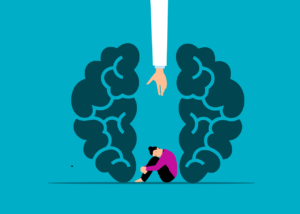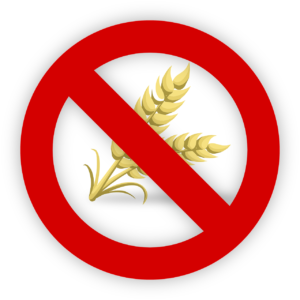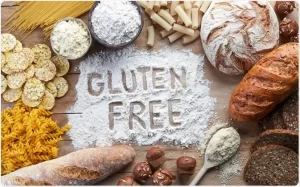Autophagy, a term derived from the Greek words "auto" (self) and "phagy" (eat), is a fascinating cellular process that plays a crucial role in maintaining overall health and well-being. In simple terms, autophagy is the body's way of cleaning out damaged cells and regenerating new, healthy ones. Think of it as the cellular recycling system, ensuring that our cells stay in optimal condition. In this article, we'll delve into the science behind autophagy, its connection to fasting, exercise, and nutrition, the myriad benefits it offers, and how it can contribute to weight management, disease prevention, and even longevity.
The Science Behind Autophagy
Understanding autophagy requires a glimpse into its molecular intricacies. At its core, autophagy involves the removal of cellular components that are no longer functioning optimally or have become damaged. This self-eating process occurs within cells, facilitated by specialized structures called autophagosomes. These structures engulf and break down unwanted cellular materials, paving the way for the creation of new, healthy components.
Autophagy and Cellular Renewal
One of the key roles of autophagy is its involvement in cellular renewal. As our cells go through their natural life cycle, some become damaged or dysfunctional. Autophagy acts as a cellular janitor, eliminating these compromised components and making way for the generation of fresh, functional cells. This process is integral to anti-aging, as it helps maintain the vitality of our tissues and organs.
Fasting and Autophagy
Curiously, the relationship between autophagy and fasting has become a focal point of research. Fasting, especially intermittent fasting, has been shown to trigger autophagy. During periods of fasting, when the body is deprived of external sources of energy, it turns inward to find fuel. This metabolic shift activates autophagy as a means of recycling cellular components to sustain vital functions.
Exercise and Autophagy
Physical activity also plays a significant role in promoting autophagy. Regular exercise induces a mild stress response in cells, prompting them to undergo autophagy for repair and regeneration. This is particularly evident in endurance exercises and resistance training. So, the next time you break a sweat, know that you're not just toning muscles – you're also giving your cells a rejuvenating workout.
Nutrition and Autophagy
What we eat has a profound impact on autophagy. Certain dietary factors can either enhance or inhibit this cellular process. For instance, caloric restriction and the consumption of nutrient-dense foods support autophagy, while excessive intake of processed foods may hinder it. Including autophagy-friendly foods in your diet, such as green leafy vegetables, nuts, and fatty fish, can contribute to a healthier cellular environment.
Benefits of Autophagy
The benefits of autophagy extend far beyond cellular renewal. Research suggests that this process plays a pivotal role in disease prevention, particularly in conditions like diabetes, heart disease, and autoimmune disorders. Additionally, autophagy has been linked to improved mental health, as the removal of damaged cellular components may contribute to a more resilient and adaptable nervous system.
Autophagy and Weight Loss
For those on a weight loss journey, understanding the connection between autophagy and shedding excess pounds is crucial. Autophagy aids in breaking down fats and recycling cellular components, contributing to a more efficient metabolism. Embracing lifestyle practices that promote autophagy can complement traditional weight loss strategies.
Challenges to Autophagy
While autophagy is a natural and beneficial process, certain factors can impede its efficiency. Chronic stress, lack of sleep, and a diet high in processed foods are common hindrances. It's essential to be aware of these challenges and make conscious efforts to address them for optimal autophagy function.
Measuring Autophagy
Assessing autophagy levels is a complex task, often requiring advanced laboratory techniques. Methods like immunoblotting and electron microscopy provide insights into autophagic activity, but they come with limitations. The dynamic nature of autophagy makes it challenging to pinpoint precise measurements, highlighting the need for continued research in this area.
Autophagy and Cancer
The relationship between autophagy and cancer is intricate. While autophagy is generally considered protective against cancer development, there are instances where it may support the survival of cancer cells. Ongoing studies aim to unravel the dual role of autophagy in cancer biology, with potential implications for both prevention and treatment strategies.
Autophagy in Neurodegenerative Diseases
The impact of autophagy on brain health is garnering attention, especially concerning neurodegenerative diseases. Research suggests that dysfunction in autophagy may contribute to the accumulation of toxic proteins implicated in conditions like Alzheimer's and Parkinson's. Enhancing autophagy through lifestyle modifications may offer a promising avenue for neuroprotection.
Promoting Autophagy Naturally
Incorporating autophagy-promoting practices into your daily routine doesn't require drastic measures. Simple lifestyle changes such as regular exercise, a balanced and nutrient-rich diet, and sufficient sleep can significantly support autophagy. It's about fostering an environment that encourages cellular rejuvenation and overall well-being.







